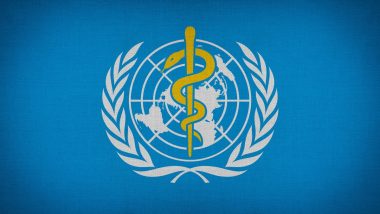United Nations/Geneva, May 5: Covid-19 no longer represents a global health emergency, the World Health Organization announced on Friday, in a major move towards ending the pandemic which killed nearly 7 million people worldwide and wreaked havoc on the global economy. WHO Director-General Tedros Adhanom Ghebreyesus told reporters in Geneva he made the decision following a recommendation from the UN agency's emergency committee, which met on Thursday for the 15th time.
“I have accepted that advice. It is therefore with great hope that I declare Covid-19 over as a global health emergency,” he said. He, however, cautioned that by declaring that Covid-19 is no longer a global health emergency does not mean that the pandemic is over as a global health threat. Last week, Covid-19 claimed a life every three minutes – and that's just the deaths we know about,” Ghebreyesus said. COVID-19 Not a Global Health Emergency Anymore, Says WHO.
The International Health Regulations (2005) (IHR) Emergency Committee members highlighted the decreasing trend in Covid-19 deaths, the decline in Covid-19-related hospitalisations and intensive care unit admissions, and the high levels of population immunity to SARS-CoV-2. The Committee's position has been evolving over the last several months. "While acknowledging the remaining uncertainties posted by potential evolution of SARS-CoV-2, they advised that it is time to transition to long-term management of the Covid-19 pandemic," WHO said.
It said that its Director-General concurs with the advice offered by the Committee regarding the ongoing Covid-19 pandemic. He determines that Covid-19 is now an established and ongoing health issue which no longer constitutes a public health emergency of international concern (PHEIC). The WHO first gave Covid-19 its highest level of alert on January 30, 2020, and its panel has continued to apply the label at meetings held every three months. Fang Bin, Chinese Whistleblower Who Documented Initial COVID-19 Outbreak in Wuhan, Released From Jail by China After Over Three Years.
The head of the WHO said at least seven million people died in the pandemic before adding that the true figure was "likely" closer to 20 million deaths - nearly three times the official estimate. "The worst thing any country can do now is to use this news as a reason to let down its guard, to dismantle the systems it has built, or to send the message to its people that Covid-19 is nothing to worry about," he said.
Covid-19 first emerged in central China's Wuhan city in 2019 and spiralled into a pandemic. While at the time, outside China there were fewer than 100 reported cases, and no reported deaths, in the three years since then, “COVID-19 has turned our world upside down,” the WHO chief said. He said Covid-19 has been so much more than a health crisis and has caused severe economic upheaval, erasing trillions from GDP, disrupting travel and trade, shutting businesses, and plunging millions into poverty.
It has caused severe social upheaval, with borders closed, movement restricted, schools shut and millions of people experiencing loneliness, isolation, anxiety and depression, he said. Covid-19 has exposed and exacerbated political fault lines, within and between nations. It has eroded trust between people, governments and institutions, fuelled by a torrent of mis- and disinformation, he said. “And it has laid bare the searing inequalities of our world, with the poorest and most vulnerable communities the hardest hit, and the last to receive access to vaccines and other tools,” he added.
The Covid-19 Weekly Epidemiological Update issued by WHO on Thursday said that as of April 30, 2023, over 765 million confirmed Covid-19 cases and over 6.9 million deaths have been reported globally. Globally, nearly 2.8 million new cases and over 17,000 deaths were reported between April 3 and 30, a decrease of 17 per cent and 30 per cent, respectively, compared to the previous 28 days. The picture is mixed at the regional level, with increases in reported cases and deaths seen in the South-East Asia, Eastern Mediterranean, and Western Pacific regions, and decreases in other regions, it said.
(This is an unedited and auto-generated story from Syndicated News feed, LatestLY Staff may not have modified or edited the content body)













 Quickly
Quickly





















